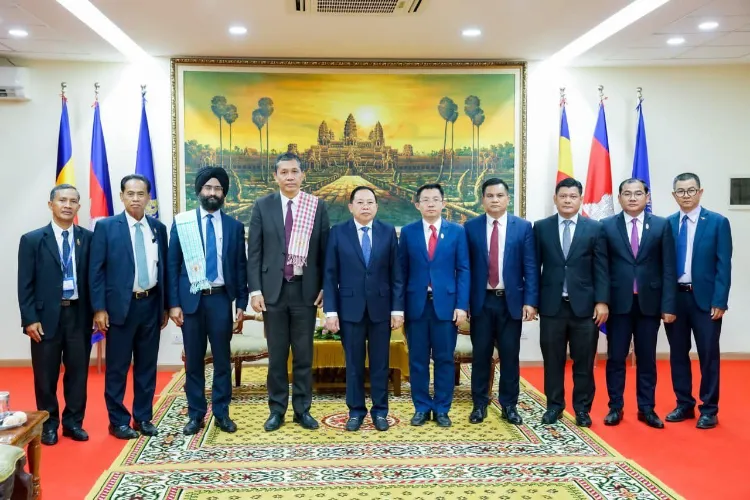
Phnom Penh
India and Cambodia continue to solidify Buddhist linkages, including religious tourism. Indian Ambassador to Cambodia Vanlalvawna Bawitlung called on the Cambodian Minister of Culture and Religion Chay Borin and discussed ways to further strengthen various cultural partnerships.
During their meeting, they also discussed the expansion of cooperation in religious affairs and outlined plans to bring Buddhist relics from India to Cambodia in 2026.
The Cambodian minister highlighted various initiatives of the government led by Prime Minister Hun Manet in promoting Buddhist institutions.
He acknowledged India's continued support, especially in providing assistance to Cambodian monks, pagodas, and providing scholarships for Cambodian students studying in India, reported Cambodian daily Khmer Times.
As part of PM Narendra Modi's 'Act East' policy, India's engagement with Cambodia continues to grow tremendously with special emphasis also being laid on promoting Buddhist linkages. New Delhi views Buddhism as a connecting factor to enhance ties with the South East Asian nations, including Cambodia.
In 1979, India was the sole nation to recognise Cambodia after the fall of the infamous Khmer Rouge regime and an embassy in Phnom Penh was revived in 1981.
India also continues to play an extremely significant role in the restoration of ancient temples and heritage sites like the famous Angkor Wat in Cambodia.
Cambodian society is predominantly Buddhist and retains a strong influence of Hindu and Buddhist rituals, idolatry and mythology. It has been seen that many of its rituals have resemblance with Indian culture and traditions. Khmer, Cambodia's official language, has more than 3000 words originating from Sanskrit.
A Cultural Exchange Programme (CEP) between India and Cambodia was signed in 2000 and has been renewed from time to time. Cultural diplomacy and Buddhism have been the cornerstone of India's foreign policy, fostering stronger bilateral and regional ties.
ALSO READ: Dr. Zafarul Islam Khan's translation of Holy Quran released
With a majority of the Buddhist population residing in Asia, and India being the birthplace of Buddhism, it is a potent soft power tool for the most populous nation in the world to assert its influence on the global stage.
